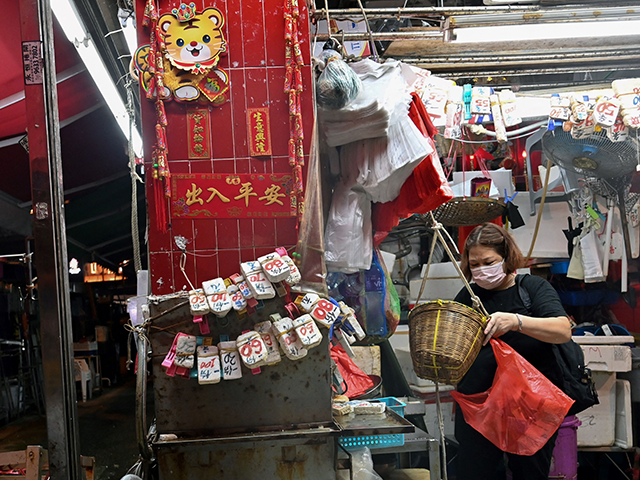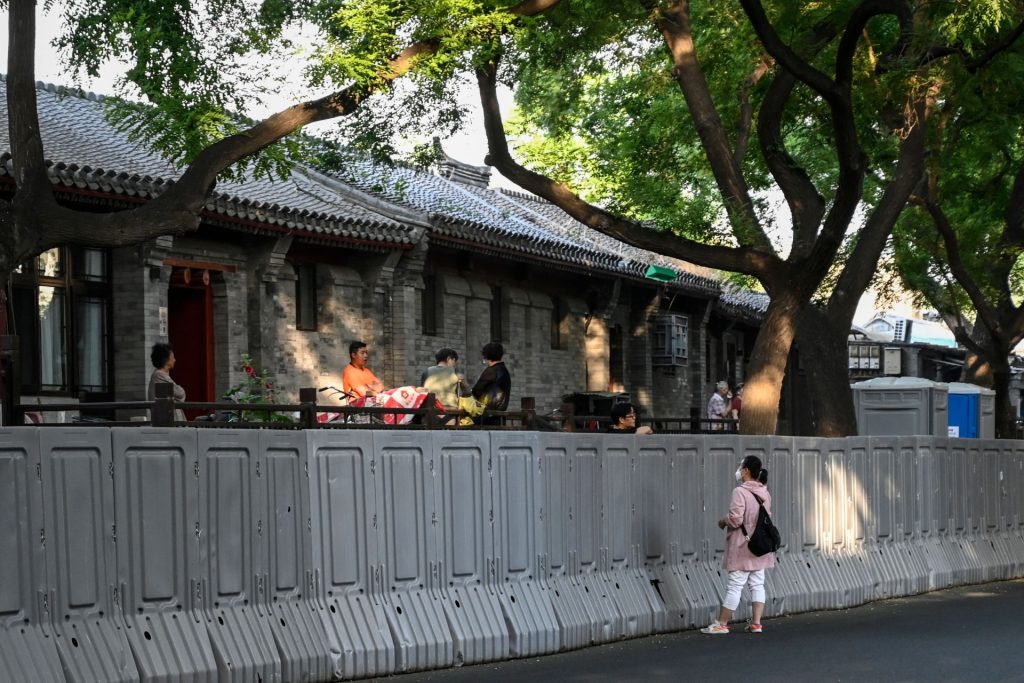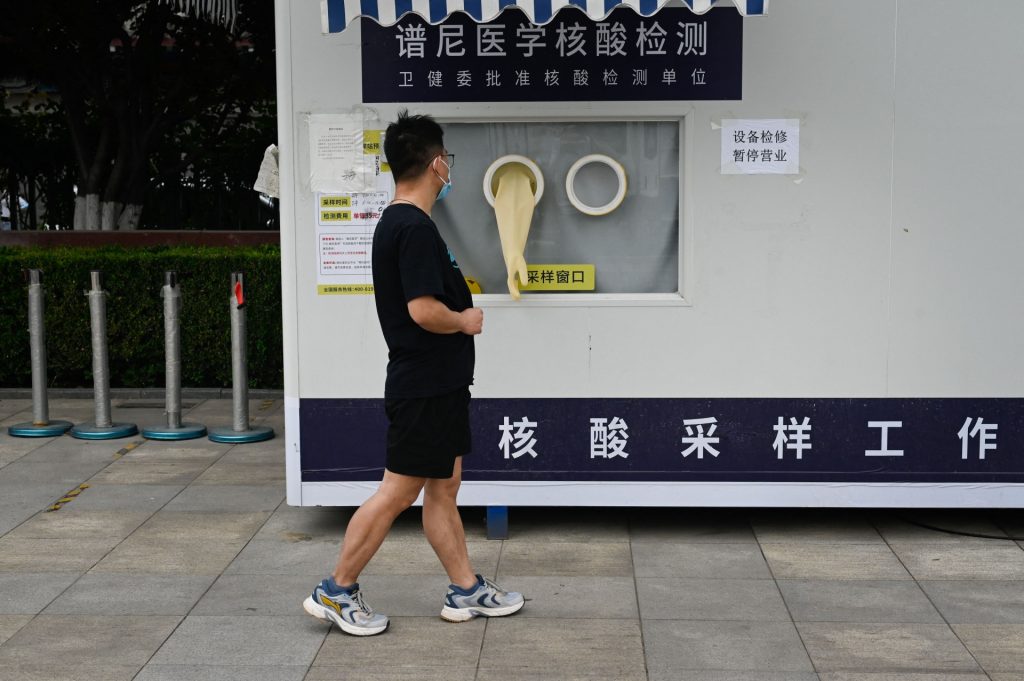China’s Economy in Tatters as Spending Plummets, Government Lacks Cash

While the Chinese government insists its economy is recovering swiftly from the latest round of coronavirus lockdowns, foreign analysts on Monday pointed to more signs of serious distress, including a trillion-dollar funding shortfall, banks freezing up, and regulators pointing fingers of blame at each other.
Analysts from Japan’s Nomura Holdings published a report last week that said China’s lockdowns, especially the one imposed on Shanghai, “resulted in a sharp contraction in government revenue.”
The gap between revenue and spending was a little over $895.2 billion in Nomura’s analysis, big enough to swallow most of the money from “stimulus measures” touted by Beijing as a means of stabilizing the economy and restoring economic growth.
In addition to reduced revenue because of coronavirus lockdowns, local governments are experiencing massive revenue shortfalls because the central government’s crackdown on real estate debt made it harder to make money by selling land.
Elsewhere, Beijing and local governments have big plans for infrastructure spending, which could dramatically increase their debt burdens. Some analysts expect these infrastructure plans to be scaled back as revenues decline.

People talk over a barricade at a fenced-off residential area under lockdown due to coronavirus restrictions in Beijing on May 31, 2022. (JADE GAO/AFP via Getty Images)
The South China Morning Post (SCMP) on Monday reported four rural banks in China’s Henan province have been frozen since April 18, prompting angry depositors to march through the streets of the provincial capital and demand the return of their money.
Some of the protesters said their life savings, or even the accumulated savings of their entire multi-generational family, are trapped in the dysfunctional banks. Demonstrators said they have been “pushed around” by the police and dispersed with “brute force.”

A man walks past a closed swab testing site in Beijing on May 31, 2022. (WANG ZHAO/AFP via Getty Images)
“Dissent over the country’s weaker small banks is the last thing Beijing wants to see after President Xi Jinping placed economic stability as a top priority and vowed to strengthen supervision within the state-dominated financial system,” the SCMP noted.
By subscribing, you agree to our terms of use & privacy policy. You will receive email marketing messages from Breitbart News Network to the email you provide. You may unsubscribe at any time.
All four of the frozen rural banks are ostensibly under investigation for practices such as pumping depositor funds into risky third-party financial schemes, which became even riskier when the latest coronavirus outbreak walloped the Chinese economy. Protesters said they have little confidence in the local authorities to conduct these investigations.
“If the central government doesn’t intervene and only relies on the local governments and regulators to investigate these banks, they will continue to evade responsibility. I just can’t trust them,” one angry depositor told the SCMP.
Foreign Policy (FP) on Tuesday theorized price shocks for food and energy caused by Russia’s invasion of Ukraine could knock over a Chinese economy already tottering from “draconian zero-Covid-19 policy,” “aggressive regulation of the technology sector,” and a massive real-estate “debt bubble.”
“Couple these recent trends with longer-term headwinds such as slowing productivity growth, demographic decline, and a continued brain drain among technology workers and entrepreneurs, and it becomes clearer that China is not the economic juggernaut many in the West believe it to be,” the analysis concluded.
FP warned that a Chinese economic collapse could have unpleasant reverberations around the world, including in the United States, whose economy is teetering on the edge of both recession and a gigantic debt crisis. Also, if a major economic downturn leaves the Chinese Communist Party feeling insecure about its grip on power, it could easily turn to remedies such as “jingoism and war.”
No comments:
Post a Comment